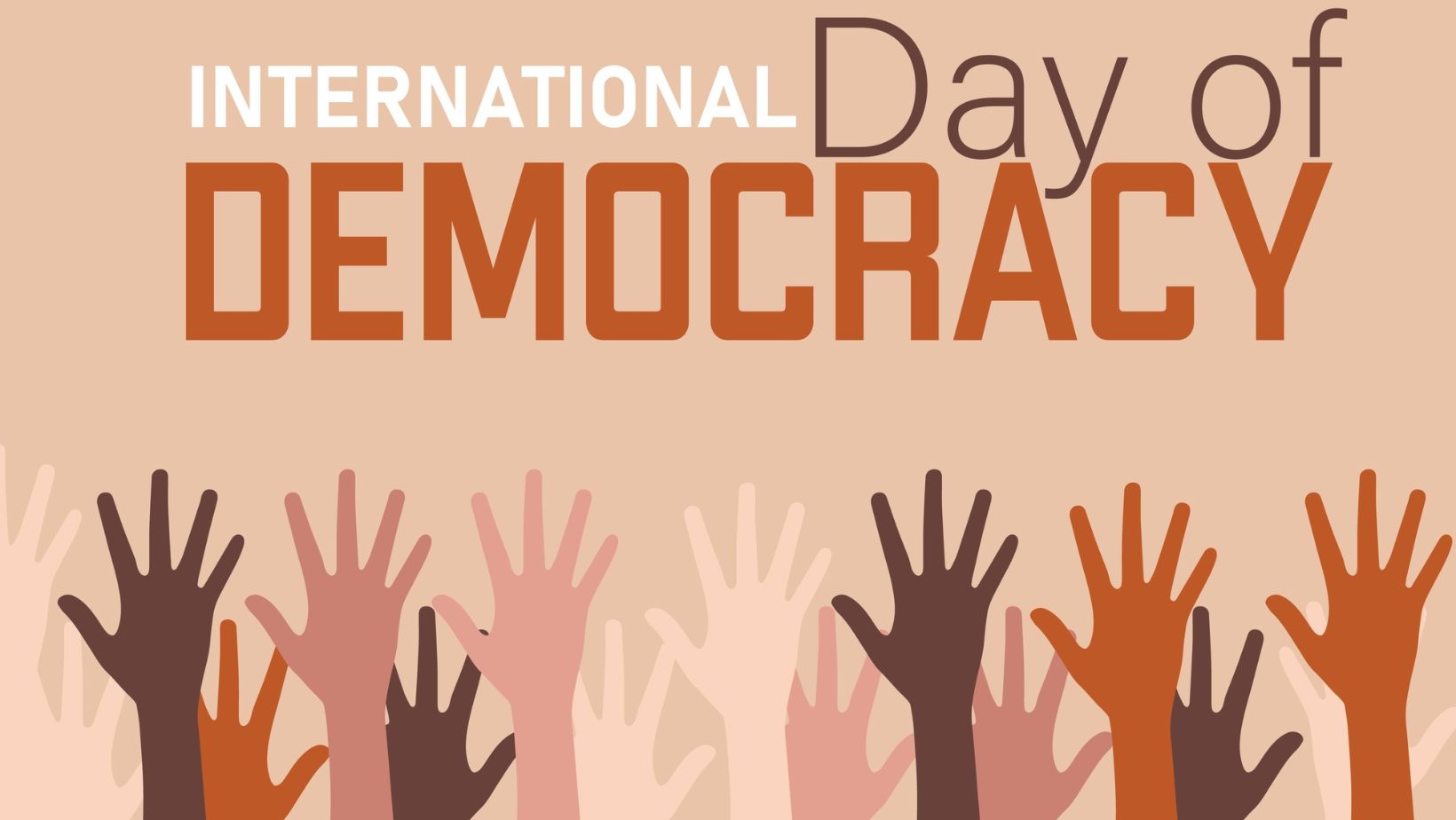Have you ever paused to consider the value of your voice in shaping the society you live in? What if there was a day dedicated to celebrating and strengthening the very foundation of free societies worldwide?
On September 15, we observe the International Day of Democracy, a global occasion that highlights the importance of democratic principles and encourages citizens to actively participate in their governance.
History of International Day of Democracy
The International Day of Democracy was established by the United Nations General Assembly in 2007 through a resolution encouraging governments to strengthen national programs devoted to promoting and consolidating democracy. The first International Day of Democracy was observed on September 15, 2008.
The choice of September 15 as the date for this observance is significant. It marks the adoption of the Universal Declaration on Democracy by the Inter-Parliamentary Union in 1997. This declaration affirmed the principles of democracy, the elements and exercise of democratic government, and the international scope of democracy.
The UN’s decision to establish this day was rooted in the organization’s long-standing commitment to promoting democracy worldwide. The UN has long believed that democratic principles are essential for achieving fundamental human rights for all and that public participation in governance is a cornerstone of peaceful and stable societies.
Since its inception, the International Day of Democracy has been observed globally through various activities, events, and initiatives aimed at promoting democratic values, assessing the state of democracy worldwide, and identifying challenges to democratic governance.
Ideas to Celebrate International Day of Democracy
Celebrating the International Day of Democracy can take many forms, from individual actions to community-wide events. Here are some ideas to engage with this important day:
- Participate in local town hall meetings or community forums
- Organize or attend a debate on current political issues
- Educate yourself about your country’s democratic processes
- Engage in volunteer work for organizations promoting civic engagement
- Use social media to raise awareness about democratic values and processes
The Pillars of Democracy
Democracy, as a system of government, is built on several fundamental principles that ensure the rights and freedoms of citizens. Understanding these pillars is crucial for appreciating the significance of the International Day of Democracy.
One of the core principles is free and fair elections, where citizens have the right to choose their representatives without coercion or manipulation. This process ensures that the government reflects the will of the people and can be held accountable for its actions.
Another crucial pillar is the protection of human rights and civil liberties. Democracies strive to safeguard individual freedoms such as freedom of speech, religion, and assembly. These rights allow citizens to express their opinions, criticize the government, and participate in the political process without fear of retribution.
The rule of law is also fundamental to democracy. It ensures that all citizens, including those in power, are subject to the same laws and that no one is above the law. This principle helps prevent abuse of power and ensures equality before the law.
Separation of powers is another key aspect of democratic systems. By dividing government into distinct branches – typically executive, legislative, and judicial – democracies create a system of checks and balances that prevents any single entity from becoming too powerful.
Challenges to Democracy in the Modern World
While democracy has spread to many parts of the world, it faces numerous challenges in the 21st century. The International Day of Democracy provides an opportunity to reflect on these challenges and consider ways to address them.
One significant challenge is the rise of authoritarianism and populism in various parts of the world. Some leaders have used democratic processes to gain power but then eroded democratic institutions once in office. This trend highlights the need for strong institutions and an engaged citizenry to safeguard democratic principles.
The spread of misinformation and disinformation, particularly through social media, poses another threat to democracy. False or misleading information can manipulate public opinion, interfere with elections, and undermine trust in democratic institutions. Combating this issue while preserving freedom of speech is a complex challenge facing many democracies.
Economic inequality is another factor straining democratic systems. When citizens feel that the economic system is unfair or that their voices don’t matter, it can lead to disillusionment with democracy and openness to alternative systems of governance.
As we observe the International Day of Democracy, it’s crucial to recognize that democracy is not a fixed state but a continuous process that requires ongoing effort and vigilance. It’s a system that thrives on the active participation of informed citizens who are willing to engage in dialogue, compromise, and collective decision-making.
This day serves as a reminder of the power and responsibility we hold as citizens in a democratic society. It encourages us to value our democratic rights, to participate actively in our governance, and to work towards strengthening democratic institutions. Whether through voting, civic engagement, or simply staying informed about political issues, each of us has a role to play in nurturing and protecting democracy.
As we celebrate the International Day of Democracy on September 15, let’s recommit ourselves to the principles of democratic governance and work towards creating more inclusive, just, and participatory societies. After all, democracy is not just a form of government – it’s a reflection of our collective values and aspirations as a society.
